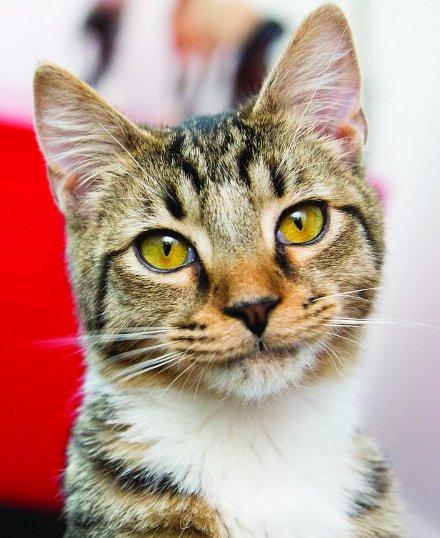
May 10, 2016
PetSafe® Expert
PetSafe® Guest
Cats 101: Understanding Basic Cat Behavior
Are you thinking about adopting a cat or a kitten, but you've never had one before? Cats are great companions and will provide you with unconditional entertainment and affection. However, cats do need a few key things to be happy and healthy and live long lives and understanding them goes a long way towards getting a new cat settled in your home. Here are a few basic cat behaviors that you should know about before bringing home your new pet.
Bathroom habits
One of the best things about cats is that they come to us already potty trained - cats already know how to use a litterbox at an early age and they require little, if any, training on the subject. However, urinating or defecating outside of the litterbox does happen on occasion and can be a major problem. Inappropriate litterbox habits can become so severe that in some cases cats must be re-homed or even euthanized.

The following tips will help avoid inappropriate elimination.
- Have multiple litterboxes throughout the house.
- Have at least one litterbox per cat and at least one box on each floor of your house.
- Cats prefer clean litterboxes, so be sure to scoop the boxes daily.
- Some cats prefer unscented litter, and some prefer clumping litter over clay.
- Covered litterboxes help contain odors, but some cats prefer an uncovered box.
Litterboxes should be located in safe, easy-to-find areas. For example, if your cat is afraid of the dog, don't make her walk past the dog to get the litterbox. If your cat is old and arthritic, don't make her jump over a baby gate to get to the box.
Scratching
Cats love to scratch, and they do it for many reasons. Scratching allows the outer, dead layers of their nails to shed. It also allows cats to mark their territory by leaving their scent behind from the scent glands in their feet.
Cats often prefer to scratch on vertical surfaces such as couches or door frames. It's important to provide your cat with an appropriate scratching post (taller is better) or you may find that your furniture becomes a scratching post. And cats will love it if you sprinkle a little catnip on the scratching post!

Drinking
Unlike dogs, who tend to drink from anywhere (even toilets), cats prefer clean, fresh, running water. Some cats will beg for water at the bathroom sink or tub and will lap up the drips if you leave the water trickling.
There are a number of cat water fountains available that will provide moving water for your cat and filter the water before they drink it. Drinking enough water is important for overall health, but the urinary tract of male cats is especially prone to problems that are made worse by not enough water intake.

Jumping & Climbing
Cats love to climb and jump, and they're very good at it. Young cats can sometimes climb curtains, jump on counters and kitchen tables and climb all over furniture.
Cats can be trained not to jump on certain surfaces like the kitchen counters, but they'll be happiest if they have safe places where they are allowed to climb. Tall scratching posts are great for climbing. Window seats designed for cats are also a good option for jumping with the added benefit of watching the outside world, dreaming about birds, and sun bathing.

Playing
Cats, especially young ones, have an intense, instinctive prey drive. In the wild, they'd be out catching mice, birds and insects. It's important to provide your cat with toys to play with that will satisfy their desire to hunt, but do it in a safe way that doesn't endanger the cat. Pet stores carry a large variety of toys that serve this purpose. Your cat may also try to play with household items which may potentially be dangerous. Don't allow your cat to play with string, rubber bands, ribbon, or tinsel. These items can cause intestinal problems if ingested and may even require surgical removal, which can be costly and risky.

Purring
No one knows exactly why cats purr. Cats generally purr when they are relaxed or being cuddled or petted. We tend to assume that it is associated with a feeling of well-being, but in my veterinary practice, I have seen many cats purr in times of stress or illness as well. One theory is cats purr when stressed to reassure themselves. Until the government raises the cat research budget, purring will remain one of the many mysteries of feline behavior.

Understanding a cat is sometimes easier than understanding your family or spouse, but it can still have its challenges. Read up on how your cat thinks, and you'll be that much closer to a happy home with your new cat.
Get Email Updates
Subscribe to the latest news, promotions, & more from PetSafe® brand.
Sign up today for the latest news, promotions, and more from PetSafe® brand.










